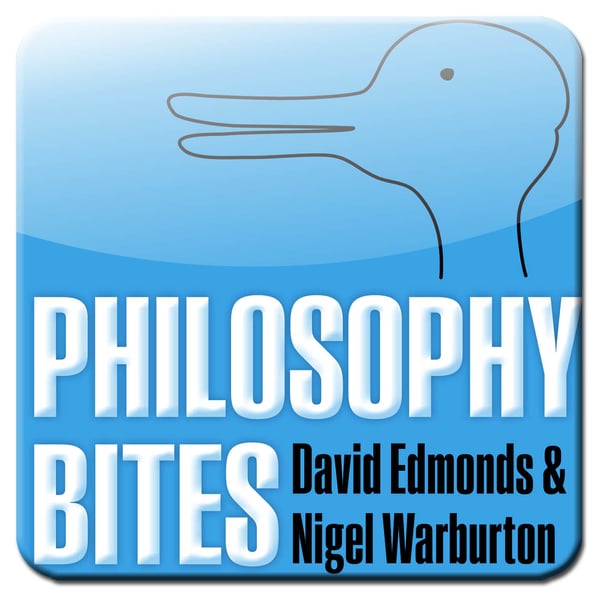Anthony Appiah on Cosmopolitanism
Philosophy Bites
Nigel Warburton
4.6 • 2K Ratings
🗓️ 2 March 2008
⏱️ 15 minutes
🧾️ Download transcript
Summary
Transcript
Click on a timestamp to play from that location
| 0:00.0 | This is philosophy bites with me David Edmonds and me Nigel Warburton. |
| 0:07.0 | Philosophy bites is available at www |
| 0:09.6 | philosophy bites.com |
| 0:12.0 | Anthony Appia of Princeton University, half English, half Garnayon, is the quintessential |
| 0:17.5 | cosmopolitan. A cosmopolitan, by his definition, is one who recognizes that people across societies have much in common, |
| 0:26.0 | while also being tolerant of their differences. |
| 0:29.1 | Negotiating these differences can be tricky, not least when what's at stake are deeply held moral or |
| 0:34.5 | religious beliefs, such as those surrounding in the oft-cited case so-called |
| 0:38.7 | female circumcision. Appia is optimistic that talking, discussing, conversing, engaging in respectful dialogue about difference |
| 0:47.0 | is the most effective way of resolving differences, or at least the best way of learning to live with them. |
| 0:54.0 | Anthony Appier, welcome to Philosophy Bites. |
| 0:57.0 | Great, very good to be here. |
| 0:58.0 | Now the topic we're going to focus on is cosmopolitanism. |
| 1:01.0 | Could you just begin by saying what you understand by that term? |
| 1:04.0 | It's one of these words that got into English from the Greek. |
| 1:07.0 | The Greek is cosmopolitan, which means citizen of the cosmos of the world. |
| 1:11.0 | So it's really a way of talking about global citizenship and it's a... the |
| 1:13.0 | of the world, so it's really a way of talking about global citizenship |
| 1:14.0 | and it's a particular tradition of talking about global citizenship |
| 1:17.0 | which has two strands I think which are worth identifying. |
| 1:20.0 | One is just the idea that we are all collectively responsible for one another, |
| 1:23.8 | the idea that we're a sort of single moral community. |
... |
Please login to see the full transcript.
Disclaimer: The podcast and artwork embedded on this page are from Nigel Warburton, and are the property of its owner and not affiliated with or endorsed by Tapesearch.
Generated transcripts are the property of Nigel Warburton and are distributed freely under the Fair Use doctrine. Transcripts generated by Tapesearch are not guaranteed to be accurate.
Copyright © Tapesearch 2025.

